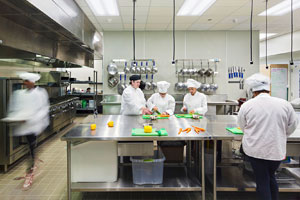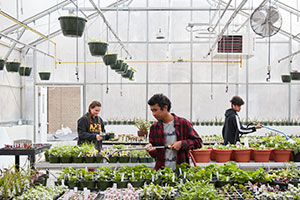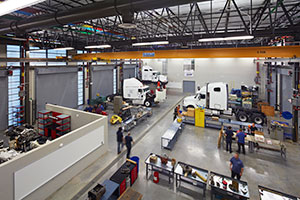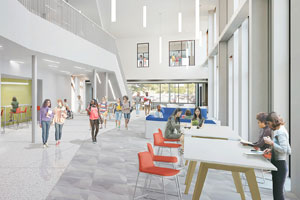The Role of Career & Technical Education Spaces in Supporting Workforce Development
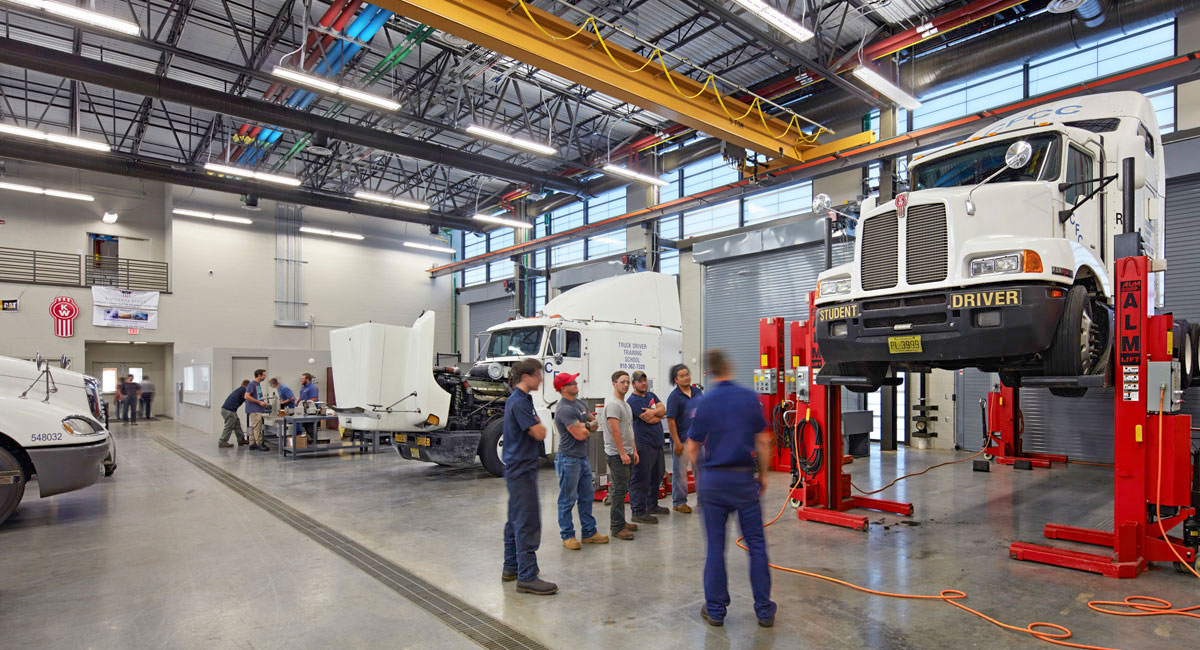 Effective career and technical education (CTE) spaces play a critical part in enabling community colleges to meet one of their most important objectives: supporting local economic growth through workforce development and readiness. This role puts community and technical colleges at a key junction – empowering workers to enter desirable career fields; and enabling local industries to grow as a result of that workforce.
Effective career and technical education (CTE) spaces play a critical part in enabling community colleges to meet one of their most important objectives: supporting local economic growth through workforce development and readiness. This role puts community and technical colleges at a key junction – empowering workers to enter desirable career fields; and enabling local industries to grow as a result of that workforce.
Research bears out just how valuable CTE programs at community and technical colleges are, and the quality of learning spaces has an impact on student success. For example, Alamance Community College’s new Biotechnology Center of Excellence will feature specialized, cutting-edge labs for biomanufacturing, bio agriculture, and histotechnology. These environments reflect the workplace settings of NC’s growing life sciences industry, ensuring students will feel prepared in their future careers.
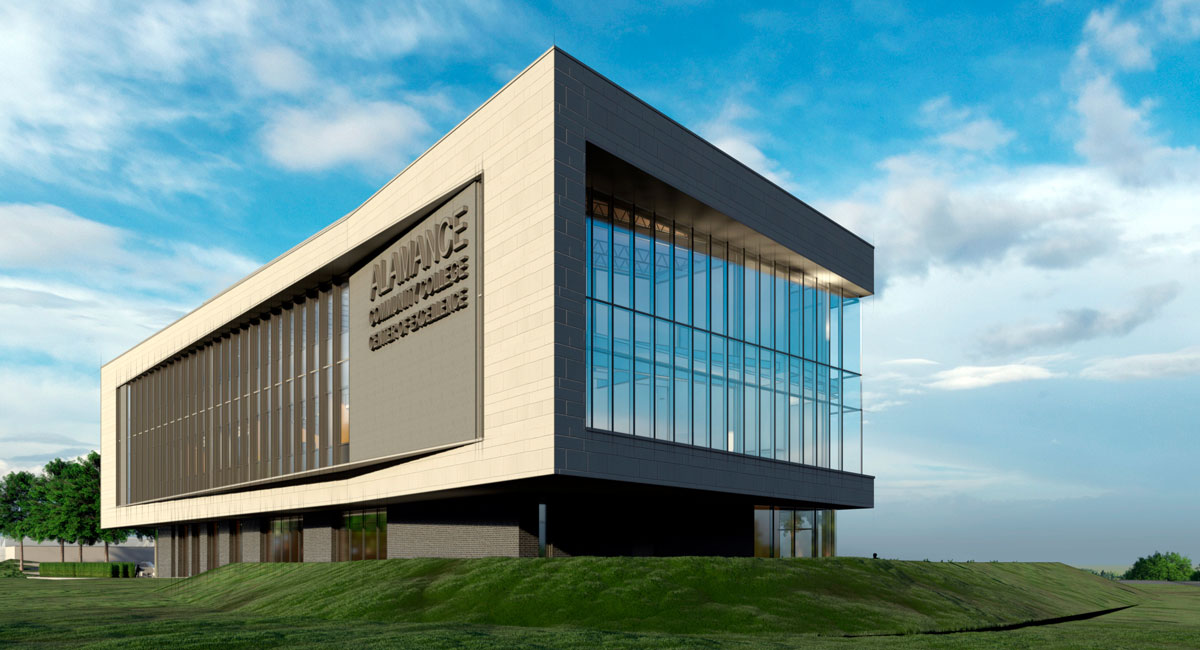
Biotechnology Center of Excellence, Alamance Community College
Many of the CTE programs offered by community and technical colleges vary by region and naturally reflect each area’s dominant local industries, although some (like nursing and other health sciences fields) are universal. Housed within the Henderson County Health Sciences Center, Blue Ridge Community College’s Nursing and Surgical Technology programs meet key workforce needs in western North Carolina.

BRCC’s students practice necessary skills in labs that mimic the professional setting and benefit from learning in a facility that integrates an active hospital cancer center. The potential for interaction between providers and patients lays a strong foundation for students’ understanding of how to deliver high quality, compassionate care.
At Wake Technical Community College, Building K is a versatile, multipurpose facility that focuses on skilled trades programs including culinary arts and fitness science.
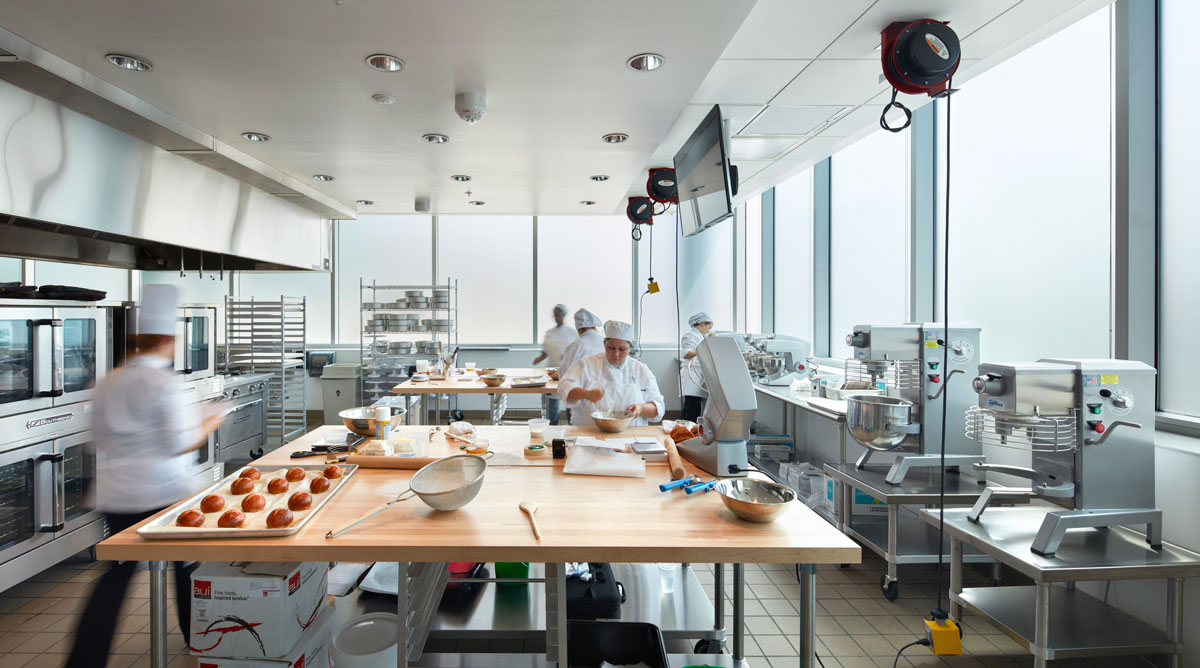
Building K’s commercial-grade baking and pastry kitchens prepare students to quickly enter the industry with both theoretical knowledge and practical, hands-on training.
Cape Fear Community College recently developed a Veterinary Medical Technology program based on local workforce demand. Its new Advanced & Emerging Technologies Building houses this program as well as those for Sustainability Technologies and General Sciences.
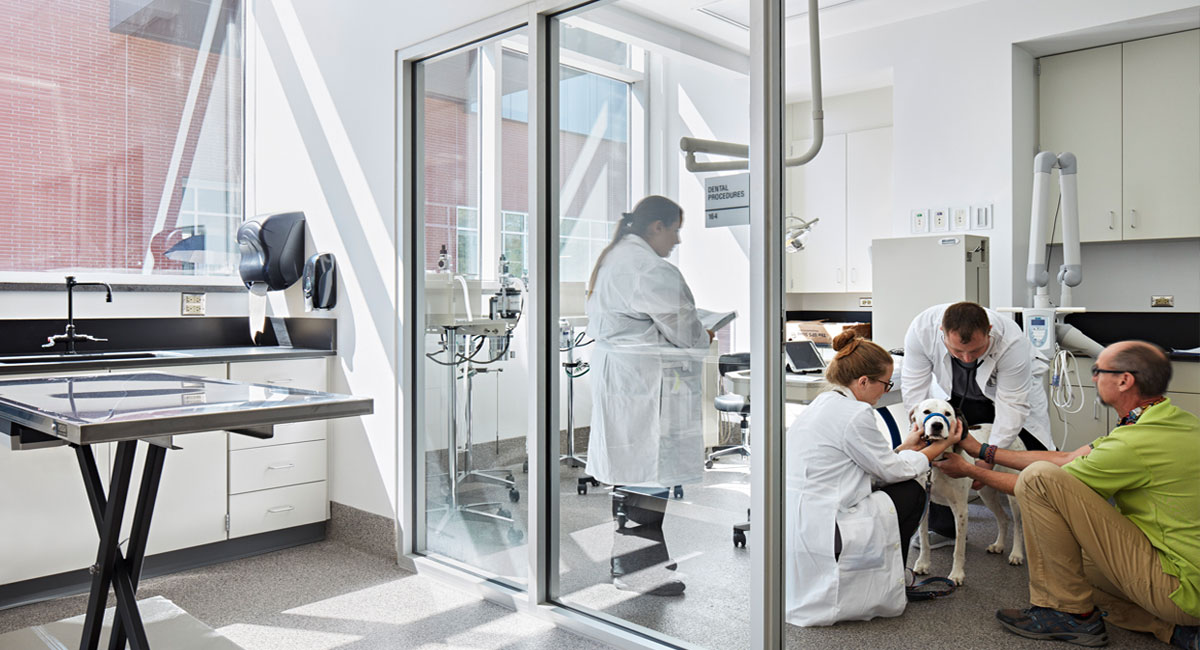
Students engage in hands-on learning with multiple species of animals as part of Cape Fear Community College’s Veterinary Medical Technology program.
CTE encompasses a broad spectrum of programs, ranging from nursing and health sciences to transportation and automotive technology. The corresponding educational facilities vary widely, too. To effectively impart the necessary balance of academic, collaborative, and technical skills requires a learning environment that considers adjacencies between hands-on labs, classrooms, and break out space. Click on the images below to see more from our CTE portfolio:
